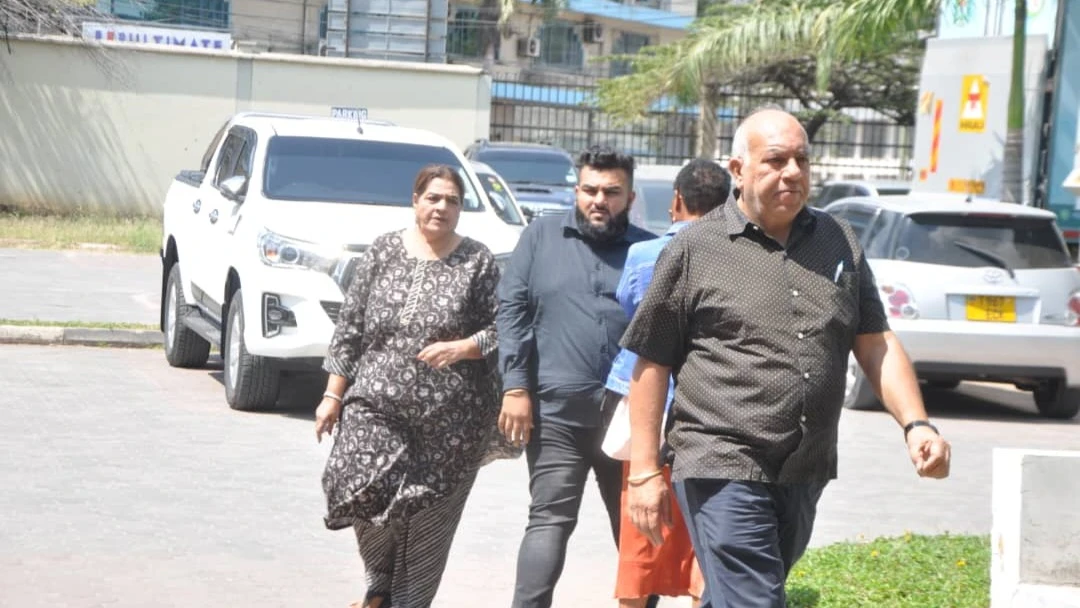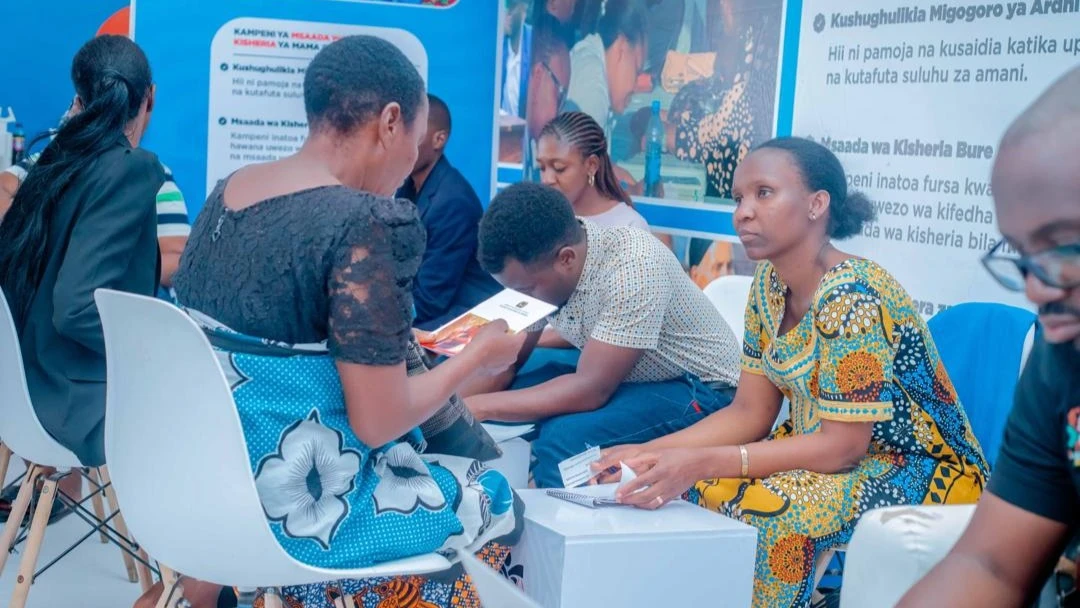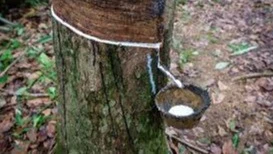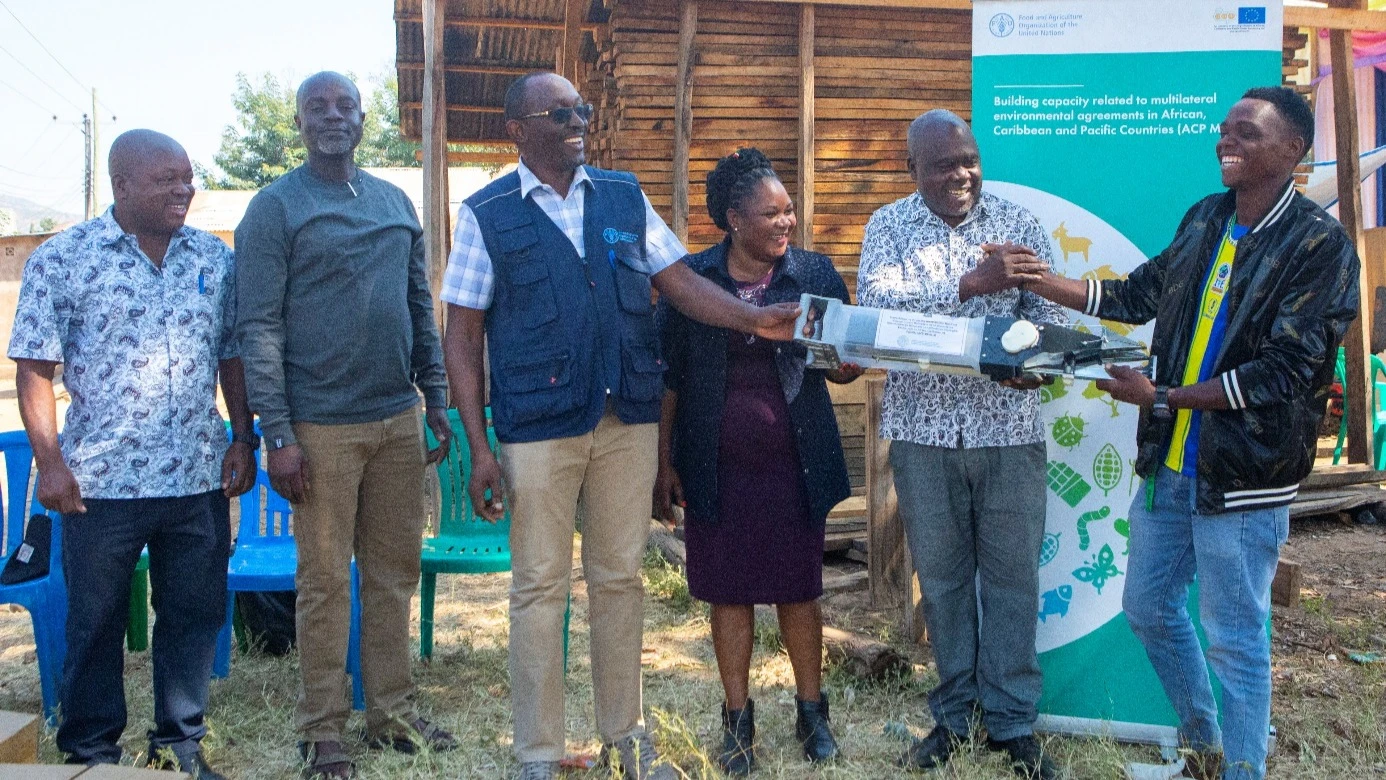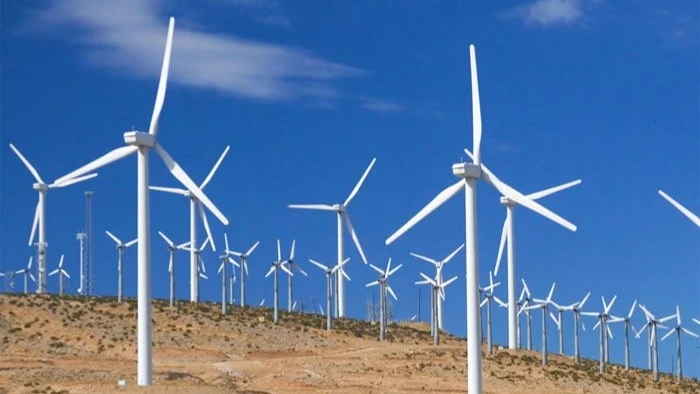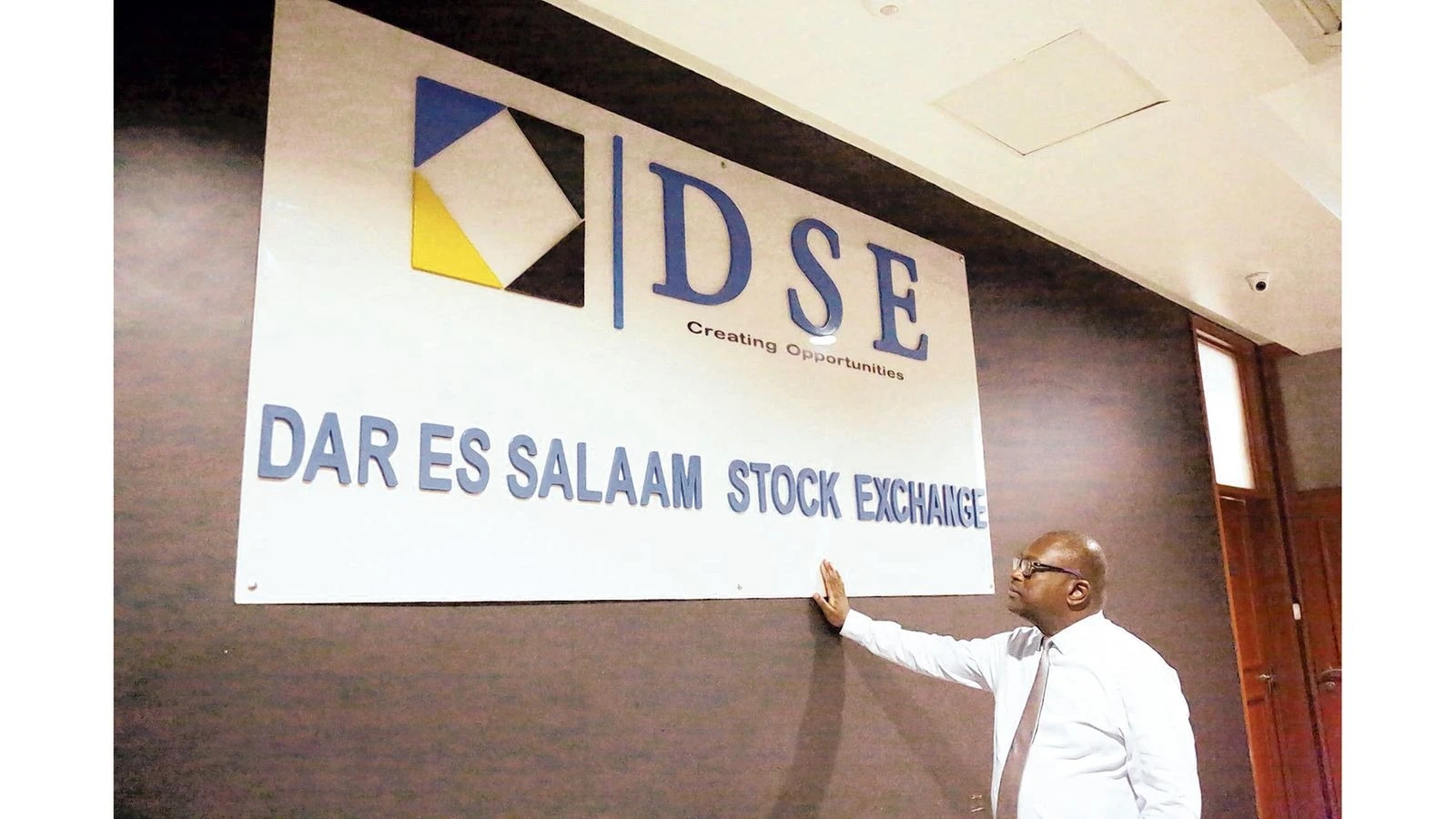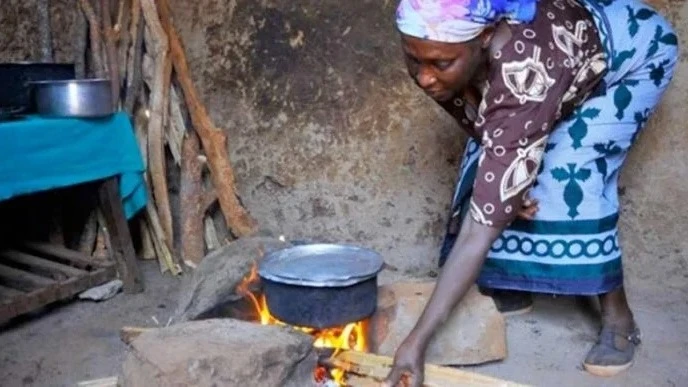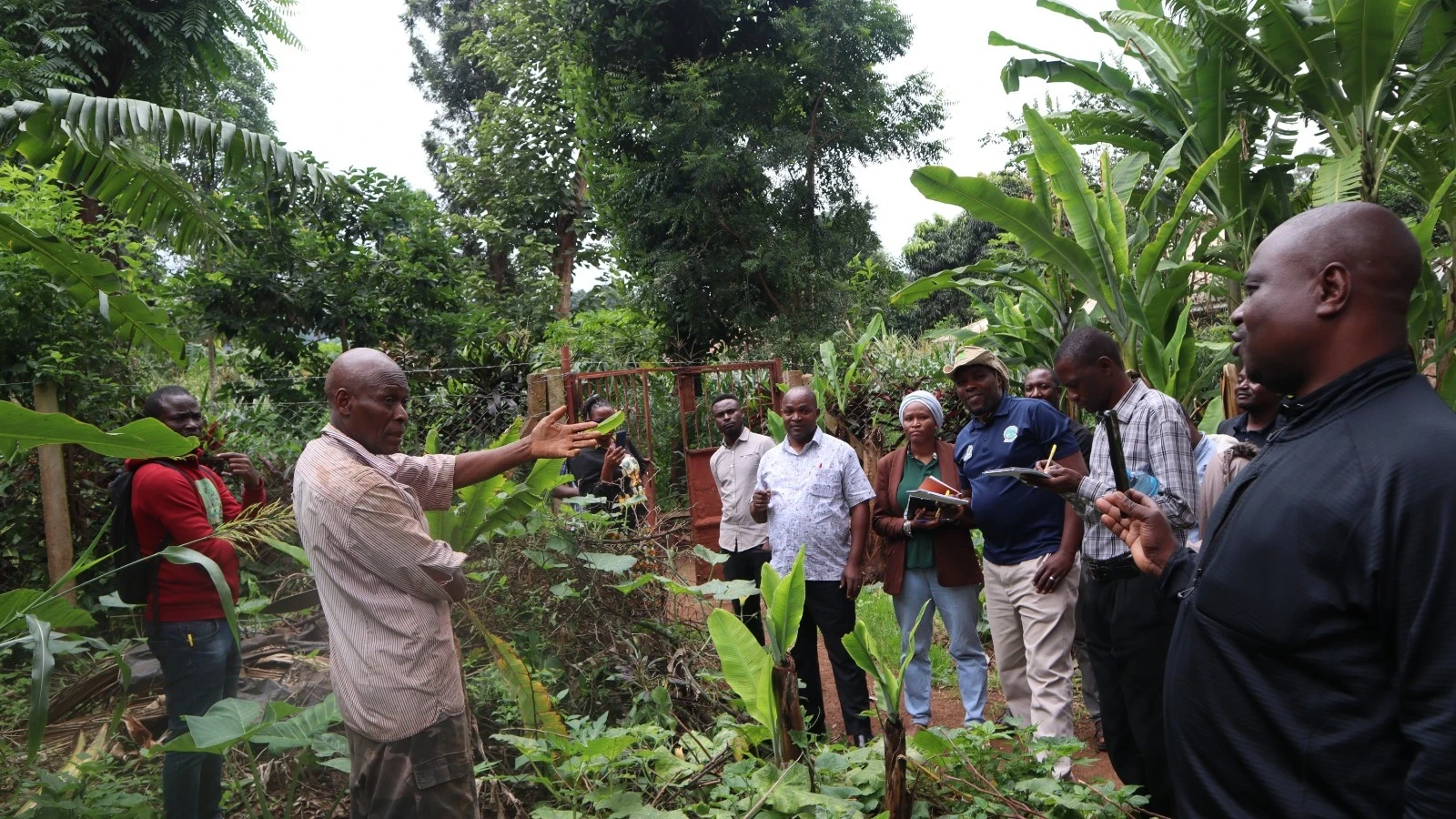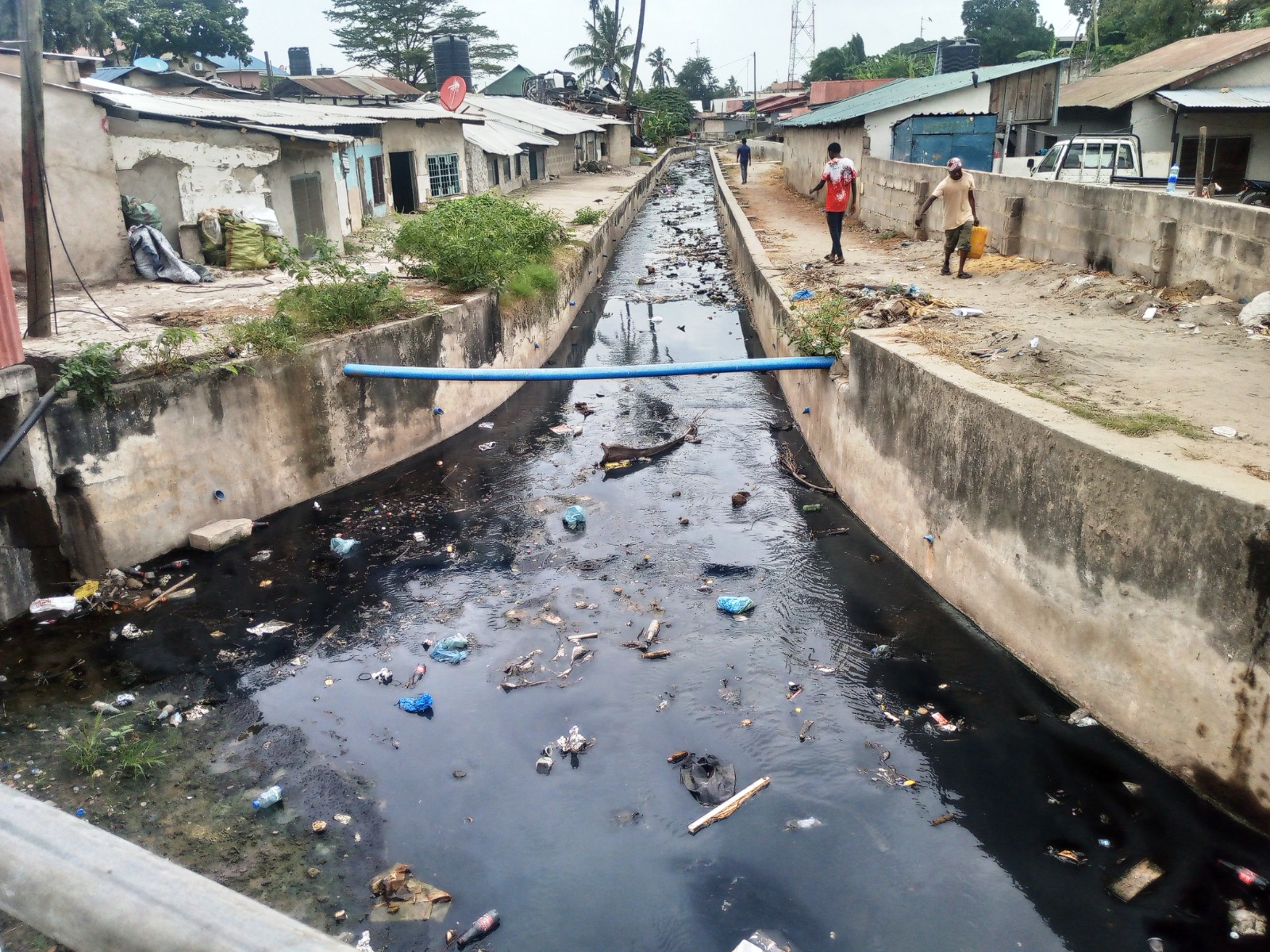Relief as 60 farmers in Dar get modern planting outfits
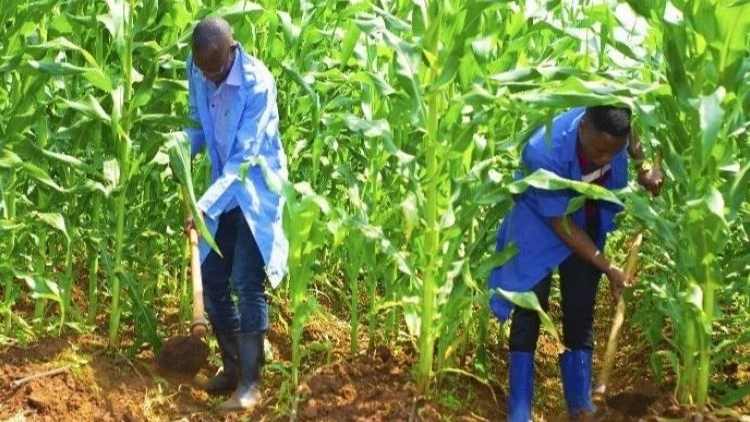
THE Food and Agriculture Organisation of the United Nations (FAO) in collaboration with the European Union (EU) has handed over modern planting machines (hand-jab planters) to 60 farmers in Kigamboni District, Dar es Salaam with aim to promote crop production, improve livelihoods and heighten food security.
The handover is part of the interventions of the capacity building related to Multilateral Environmental Agreements in African, Caribbean and Pacific Countries – Phase III (ACP-MEAs 3) project, funded by the EU.
Speaking during the handover event in Dar es Salaam on Wednesday, Diomedes Kalisa, Project Coordinator at FAO said donation of the equipment will go along with training to the farmers to facilitate proper handling for best results.
He said them jab planters will be helpful to farmers as they save labour and time where operators work standing upright with jab planters and hand pushed or pulled seeders so they are generally less tiring than planting with a hoe.
He said the equipment improves speed and accuracy of sowing, with work rates up to four times higher than for planting by traditional methods.
Kalisa noted that among the four outputs of the MEAs 3 project, output number two aims to promote the implementation of measures that support producers in transitioning to more sustainable, resilient, and productive production systems, as well as to facilitate their access to innovative solutions, adaptive-management training, and financial and non-financial incentives.
According to him, based on various field visits and observations, it was noted that farmers in the selected districts, especially women and youth, lack sustainable agricultural tools to improve efficiency while ensuring environmental sustainability, social equity, and economic gains.
“Best ecosystem-based practices that generate multiple global environmental and socio-economic benefits are scaled up, linking landscape-level ecosystem management with improved food security and poverty reduction at the community level and promoting alternative livelihood activities, we hope that these tools will speed up production and promote economic growth,” he explained.
Hassan Ismail, Senior Agro-Engineer at the Ministry of Agriculture said jab planters present an opportunity for farmers to adopt precision agriculture methods, resulting in improved crop yields and resource optimization.
He said the primary objective of jab planters is to optimize seed placement, spacing, and depth, thereby maximizing crop yield while minimizing resource usage.
Ismail said these advanced planters are equipped with sophisticated sensors and software that enable farmers to precisely manage planting operations, adapt to varying field conditions, and ultimately contribute to sustainable and resource-efficient farming practices.
Top Headlines
© 2024 IPPMEDIA.COM. ALL RIGHTS RESERVED









